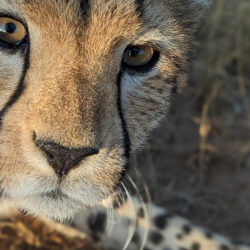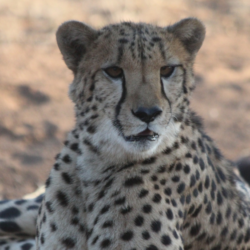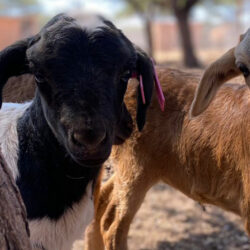A Day in the Life of CCF Field Staff
-
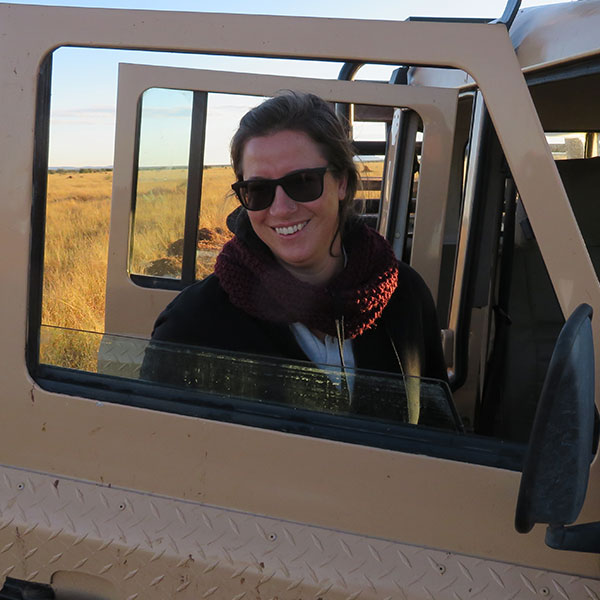
- by Nadja LeRoux September 5, 2018
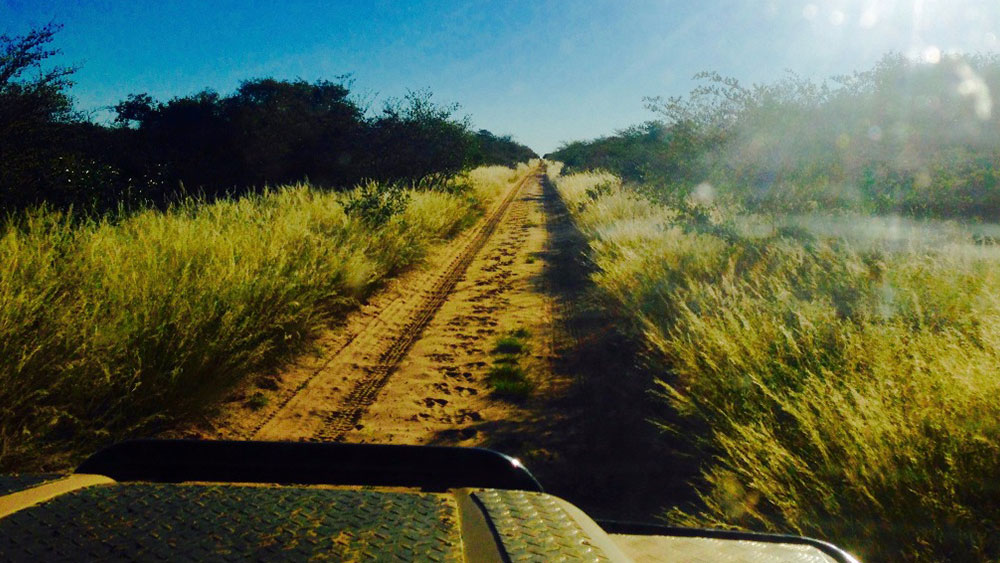
Cheetah Conservation Fund’s ecologist William Briers-Louw and myself have spent three quarters of this year living and working in the Okakara district communal conservancies. Two to three weeks every month are spent free camping to ensure we are immersed and easily accessible to the human community living in the area. Our days start at 6am leaving camp to reach camera trap sites to set-up or perform battery changes. We respond to human/wildlife conflict incidents and we often don’t return to camp until late in the evening. There are very few luxuries on site, probably the most cherished ones are an extra battery and inverter fitted into CCF’s field vehicle that can charge batteries, torches, laptops and of course keep the beloved fridge freezer going.
The conditions are never the same, summer brings temperatures of 42 degrees celsius, rain and creepy crawlies. Winter can reach temperatures below 0 degrees celsius, with short and dusty days. All meals are prepared on fires. We collect the wood ourselves and we have on occasion been rained out of cooking in favor of dashboard dining in the vehicle. We collect water as we go. We fill 25L containers at villages and this water has to be used carefully. “Showers” are limited to a couple of liters from a bucket usually behind the vehicle.
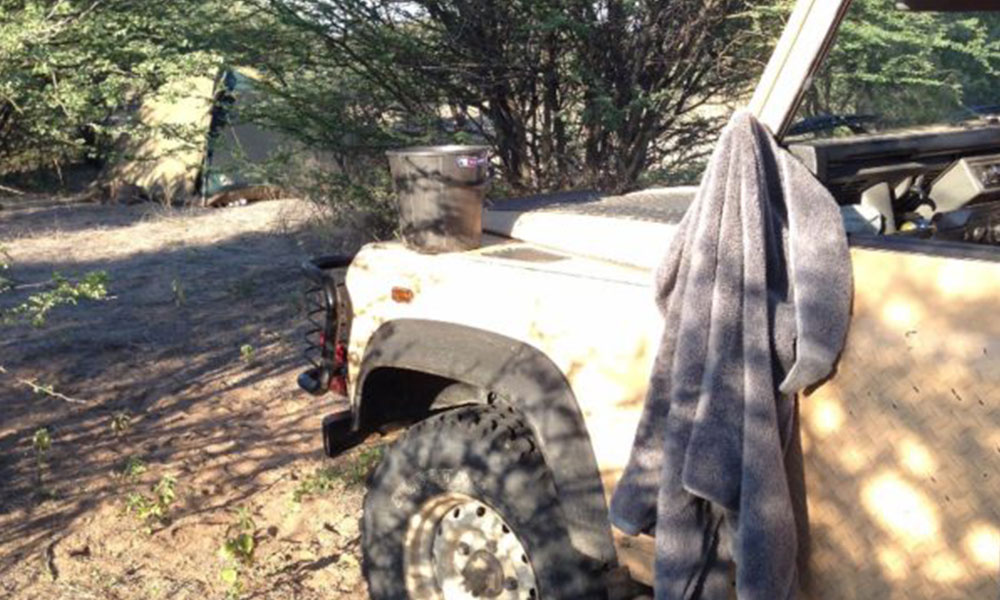
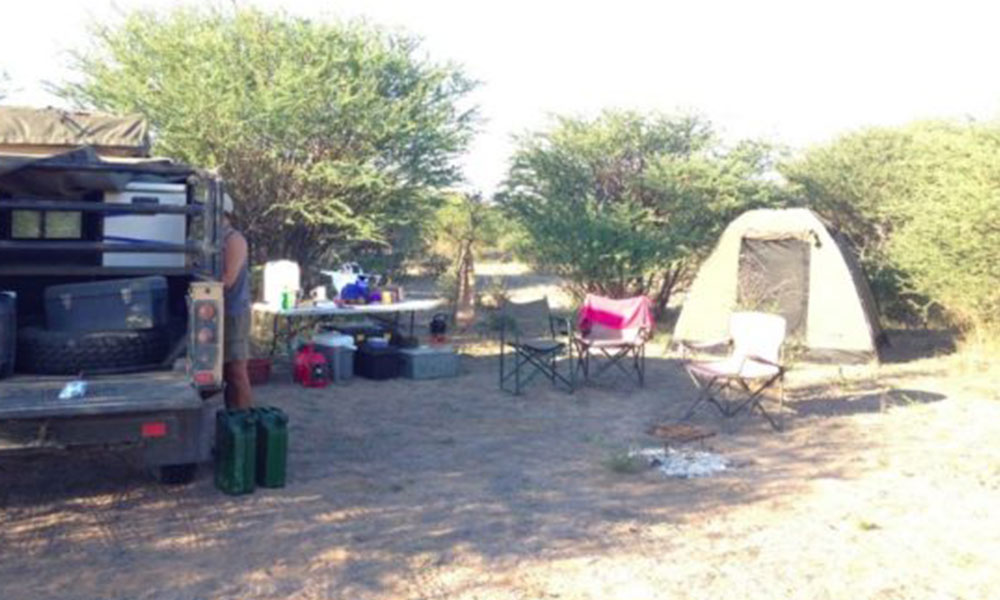
Breakdowns of the field vehicle happen on occasion as the terrain is very rough. There is often a lot of off-road driving to reach isolated areas when responding to human/wildlife conflict. By building strong local relationships, the team have acquired some very handy “bush mechanics” to assist with breakdowns. One such person is a retired Land Rover mechanic and what a gem to find such a person in a remote area who can fix the vehicle so well and right on the spot. Spare parts are carried in the field vehicle as there is no access to parts. A day off doesn’t exist in a “day in the life” for the field staff. If there is a chance to have a morning or afternoon off, it’s spent hand washing clothes, cleaning and maintaining valuable gear or working on entering data. We rely on a few solar lights and torches at night, and an appreciated full moon on occasion. As a team, we have years of collective experience out in the bush, and we are passionate about what we do. Despite the hard conditions in the field, we get to enjoy silent nights with stars that never end, beautiful landscapes, rare but vital wildlife sightings for our data collection, communities that embrace us, and often generously gift us with local food items produced by the farmers (and we accept very thankfully!). Life is simple but meaningful and there is never a dull or mundane day.
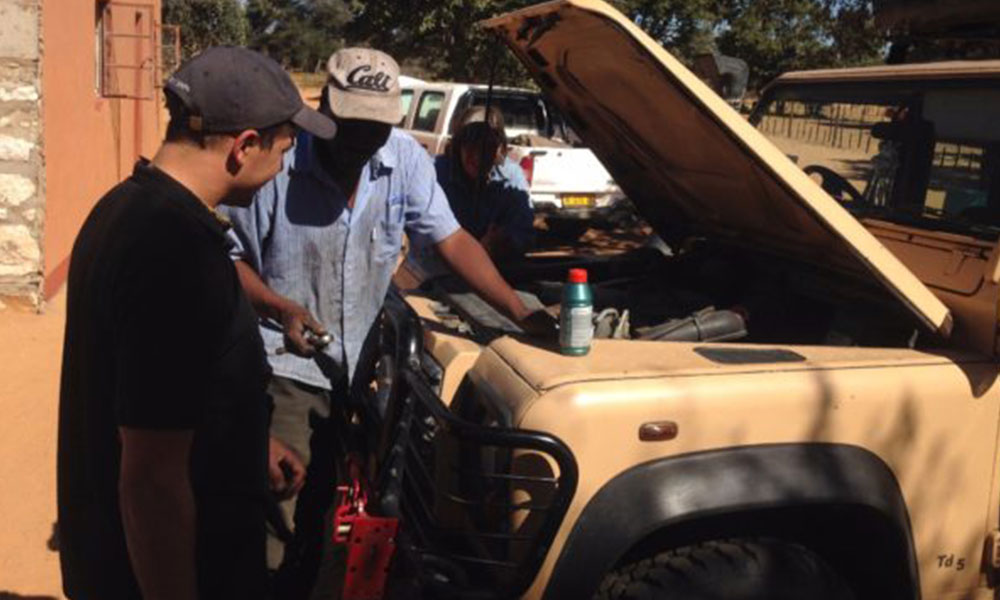
Related Reading
-
March 8, 2024
Make a Positive Impact Toward Species Conservation -
November 28, 2023
Everything you need to know about the #BigGiveChristmasChallenge -
May 24, 2023
Lambing Season and Responsible Farming

